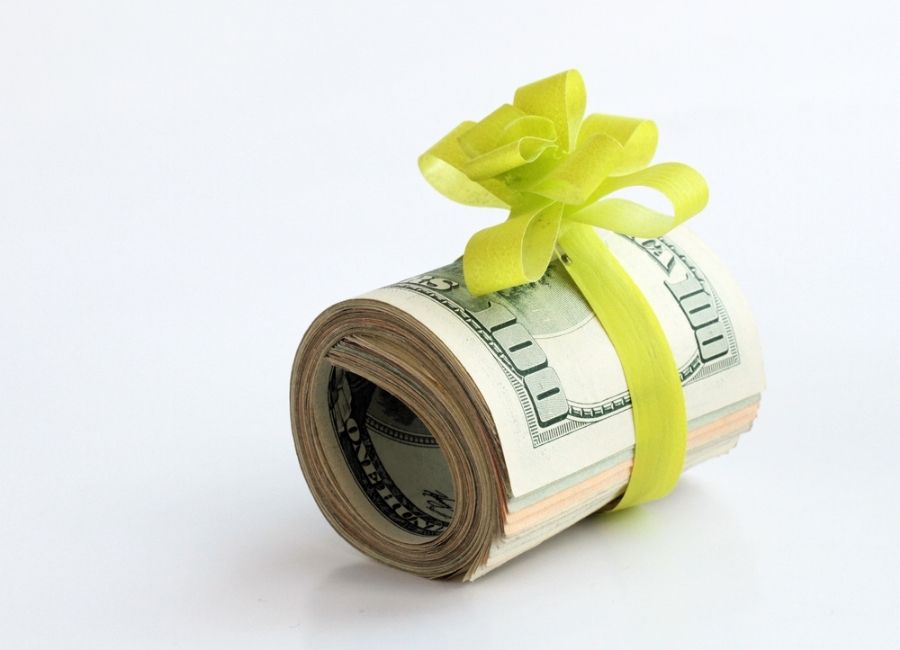It’s my belief that there’s a common misconception that being frugal equals being cheap. That’s absolutely NOT the case! In fact, being frugal means you’re “economical with regard to money.” Being cheap means spending the lowest amount possible, with no regard to quality.
In other words, being frugal means you make smart decisions with how you spend (or don’t spend) money. Being cheap means you don’t make decisions, you just spend on the lowest possible price available. Because there’s a difference in the two, let’s talk about 5 ways to be more frugal and less cheap.
5 Ways to Be More Frugal and Less Cheap
#1 Focus more on quality than cost
Since being frugal means you’re thinking through your financial decisions to make the most economical choice, quality should be a driving factor in your decision. We’ve all heard the saying “you get what you pay for.” Meaning, when you go the cheapest route, it ends up costing you more in the long run. You’re saving money by purchasing the lowest-possible option, but how long will it last?
When you focus on quality, you may end up spending a little more in the short-term, but the item lasts much longer. That means you get a better return on your investment. Instead of always going for the cheapest option, take your time to think about how quality can play a role in your decision to purchase. Even if it means waiting to accumulate the funds, quality over quantity always wins.
#2 Give thought to every purchase
Remember, being cheap means you’re spending the least amount of money possible, without thought or question. If you want to work towards being more frugal, think through each purchase you make – beyond the price point. When you’re thinking about buying something, ask if you need it, think about the quality, and determine if it’s a good long-term play.
When you think through every purchase, you not only get yourself out of the “cheap” category, but you start to become more intentional with the money you make. Being intentional leaves you feeling confident in your money decisions. When you’re more confident in your money decisions, you put yourself in a position to succeed in the future.
#3 Consider your happiness when contemplating money decisions
Spending money on something that doesn’t make you happy, even if you’re not spending a lot is never a good move. You always end up feeling bad about the purchase – and you end up justifying it because the cost wasn’t bad. Now that you’re giving thought to each purchase, consider how happy the purchase will make you.
If your purchase sparks joy, continue to the next round of decision-making. Happiness, especially with our money decisions, can help lead to less stress and anxiety. If your purchase doesn’t spark joy or make you happy, avoid it altogether. I’d rather you keep your money in the bank, than spend it and not be happy that you spent it.
#4 Say “no” to some things to say “yes” to others
One of the best things you can do for your budget is prioritize the things that matter most. That means you can’t say “yes” to everything. You have to say no to purchases that impact your goals and or take money away from the things that matter to you.
If attending a friend’s engagement party and bridal shower is too much, say “no” to one of the events. That way you can continue working towards your priorities, but also support your friend in a way that doesn’t negatively impact your finances.
Saying “no” is not an easy thing to do. This is especially true if you’re used to saying “yes” all the time, or you have people-pleasing tendencies. You don’t want to let anyone down, so you say “yes” more than you should…only to end up letting yourself down. Don’t do it. It’s not worth it. Not to mention, the people you say “no” to should respect your decision. If they don’t, do you really want them to have that much power over your life?
#5 Refer to your budget to be intentional with your spending
One aspect of being intentional with your spending is knowing how much you can afford to spend. Your budget is the best tool for knowing that information. Your budget lays out what your income should be doing over the course of the month. That means, after all of your priorities and normal spending is accounted for, the money left over is what you have to work with.
When you know what you’re working with financially, you can make decisions that align with those limits. You can think through purchases to make sure you’re not taking away from other responsibilities. You don’t have to be cheap, but you do have to be intentional.
Need help with creating a budget? I’ve got you covered! I create personalized budget plans for clients who need the assistance with allocating their income in a way that lets them enjoy life, but still have the priorities taken care of. Get your budget plan today!
Related: 9 Frugal Habits to Implement Now
Being frugal can be a very good thing. On the other hand, being cheap can keep your quality of life lower than necessary. Leverage these tips above to help you think about your money differently and make intentional choices that help improve your happiness and get you closer to your goals! Would you consider yourself frugal, cheap or neither? Drop a comment below to share!






1 thought on “5 Ways to Be More Frugal and Less Cheap”
In relation to #2 something that has helped me is waiting at least 24 hours to buy the thing I want or “need” and seeing how i feel the next day. It forces you out of frivolous purchases and getting out of the desire quickly!